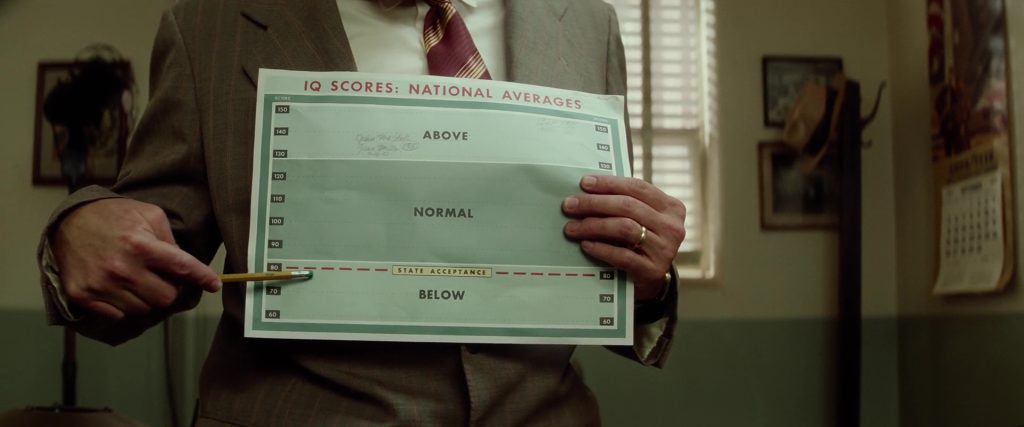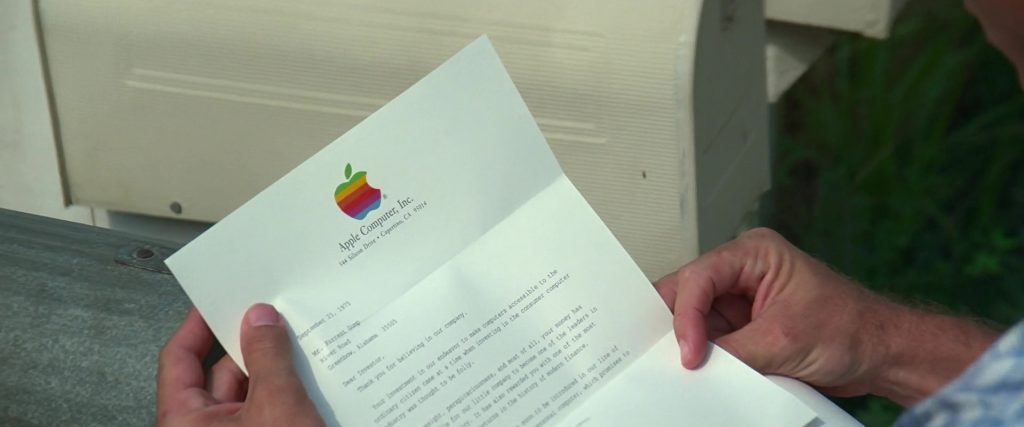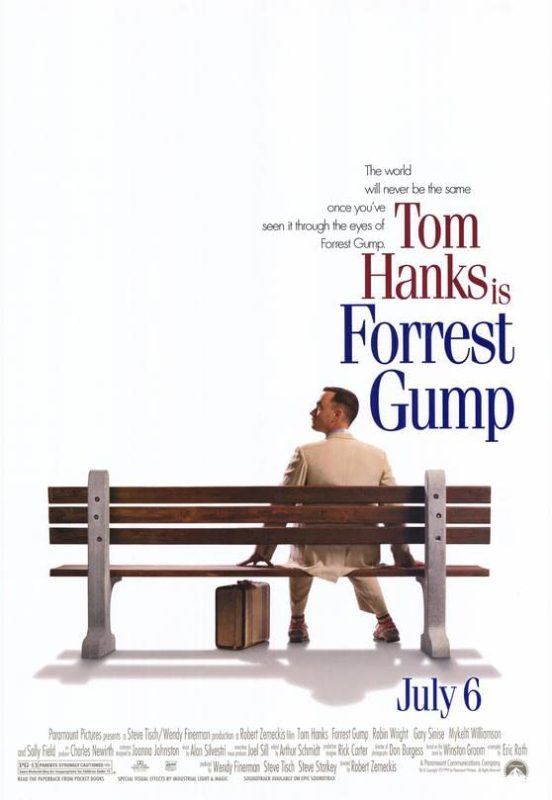The heart-wrenching story of Jack, a simple farmhand who can talk to animals, Forrest Gump gets worse every year. I am not the first to notice its entropic quality: the way it lies rotting in cinematic history like a corpse reeking inside a bog. The movie fluxes and changes as time squeezes its hand, but never in a good way. Its skin grows putrid, its features grows sunken, its bones shine through gaps in its deliquescent flesh. Long, slow death is pulling it down and then tearing it apart. Six Academy Awards, seven hundred million dollars at the box office, and now this. The movie’s hollow, rictus-grinning skull is an urgent warning: you can take none of this with you.
I thought it was a great movie once, when I was eight or nine (I watched it with Mom and Dad, they they fast-forwarded through the part in the burlesque club).
Another thing I did when I was eight or nine was create a superhero called Yarn Dog. He was a dachshund who could rapidly knit complex objects. In one of Yarn Dog’s adventures, the villain hurls him off a cliff, so he whips out a trusty ball of yarn, gets clackin’ with his needles, and knits a fully-functioning helicopter around his falling body. Moments before he hits the ground, he grabs the throttle and flies his yarn helicopter away into the sunset which is actually a profound metaphor for
I hate Forrest Gump. It’s so bad. Its main storytelling choice—to tell the history of late 20th century America from the perspective of a mentally-handicapped man—is tactical: Forrest is too slow to form opinions on anything happening around him, which means the writers don’t have to form one, either.
Forrest Gump takes no stances, advances no arguments, makes no interpretations. It is a movie about nothing. It’s a rapid-fire montage of historic moments (Vietnam, Watergate), with Forrest Gump standing around looking oblivous. I wonder what are you supposed to “get” out of Forrest Gump? That the sixties happened? I already knew that.
This movie thinks you’re abysmally stupid. Every plot point is explained to death, reanimated using a Necronomicon, then explained some more. The first (but by no means last or worst) example comes when Forrest’s mother tries to enroll him in school. The principal says it’s impossible, because his IQ is 75.
This doesn’t need further exposition. Even if you don’t know how IQ scores work, you can infer from context that Forrest is unintelligent. We get it. It’s not necessary for the principle to pull out a chart, and indicate for the audience where Forrest is on the distribution.

While that might seem like a small complaint, it exhibits one of the film’s main problems: it never knows when to stop. Whether it’s explaining the plot, telling a joke, or making a cultural reference, Forrest Gump always goes too far, spoiling its desired affect with crassness.
It’s not enough that Forrest met Elvis as a kid. He inspires Elvis’s stage moves, too! It’s not enough that he stays at the Watergate hotel. He also exposes the plot! It’s not enough that he meets John Lennon. He basically writes the lyrics to “Imagine”, live on TV!
(The film makes Lennon look like an imbecile, with the questions he asks Forrest. “No possessions? No religion?” Lennon had been involved in revolutionary politics for years by that point. Surely he’d heard of China.)
By the end of the film, it’s absurd that Forrest isn’t the most famous person in America, recognized wherever he goes. Literally two dozen things have happened to him that would be the coolest-ever event in the life of the average man. He’s received the Medal of Honor, competed at a historic international sporting event event, foiled a conspiracy, met multiple US Presidents, and that’s just for openers. In real life, a guy from Milwaukee became a national craze just by looking a little like Hugh Jackman.
The movie has no weight or believability behind it. The image of a drifting feather kind of sums up the film.
But it’s a comedy film. So I shouldn’t analyze it seriously or literally at all.
This is the “clown nose on, clown nose off” defense, described by Kevin D Williamson here—when a comedian starts doing serious political commentary, they invariably cover up their mistakes by putting a clown nose on and reminding you that they’re just a comedian.
The fact is, Forrest Gump is only barely a comedy film. It’s sanctimonious Oscar bait, lightened only by Forrest’s oblivious commentary, and huge sections of it are played completely straight.
Sometimes the movie’s just laughable. At the start, Forrest is wearing leg braces, but when he gets chased by some comical “gimme your lunch money” movie bullies, he starts running, and the braces dramatically explode from his legs in a thousand pieces. It has the air of a superhero transformation, like the Incredible Hulk tearing apart a shirt. Those braces couln’t have been cheap. My only thought was “now his mom will have to fuck the orthopedic doctor as well as the school principal.”
A big part of the film’s credit was the special effects—with Robert Zemeckis directing, how could they not be excellent?
But looking back, the effects are quite hit or miss. The effect where they remove Lt Dan’s legs looks great. The entire Vietnam sequence looks fake to me. Rain is generated by a hose held above the actors (you can clearly see no rain is falling in the background). The monsoon season ends, and moments later, the leaves and grass look bone-dry. Forrest narrowly escapes multiple thermobaric bomb explosions…and immediately has a conversation with a wounded soldier? His eardrums haven’t ruptured from the overpressure blasts?
Other shots composite Forrest into archival footage. But it looks “wrong” in a way your brain subconsciously (if not consciously) picks up on. As I’ve said before, people automatically position their bodies to accomodate the presence of others, and it’s obvious when this isn’t happening. You can’t just digitally insert a new human being who wasn’t there in real life. He will conspicuously not belong in the scene.
There were some parts I liked. Lt Dan has a character and a personality. The joke about Forrest making millions investing in “some kind of fruit company” was funny.

But these gains are erased by the soap opera plotline involving Jenny. She’s just a poor moppet, a collection of shameless cliches. An abused child, a drug addict, and on and on.
Here is where it comes closest to actually saying something about the values of the 60s counterculture, and the way—according to some—they were either hollow, or swiftly sold out by the hippies themselves. (I saw a funny joke on Twitter: a picture of Woodstock, captioned with “somewhere in that crowd is the man who invented ATM fees”). But Jenny is such a manipulative cliche of a character that this falls flat.
Forrest Gump does provide an interesting illustration of something.
The “Waluigi Effect” in generative AI describes the tendency for a language model to give the opposite output than expected. Read it for technical details, but basically, if you specifically ask an AI to be smart, you’ve accidentally made it more likely to say something stupid. This is because [positive trait] and [opposite of positive trait] exist close in probability space, and when you push the model toward one, you inevitably push it toward the other.
But this happens to humans, too. What is “Imagine” by John Lennon except the Waluigi Effect? It is clearly trying to be profound and deep and meaningful, but it just sounds really trite. It wants to unite humanity, but it’s surprisingly mean and catty (John’s smug “I wonder if you can…”) It rejects religion, but strives for the stateliness of a secular hymn.
Forrest Gump is an even better case. It wants picturesque authenticity but feels tinny and fake from end to end. I have never seen a movie so utterly the opposite of what it thinks it is than Forrest Gump.
No Comments »
Comments are moderated and may take up to 24 hours to appear.
No comments yet.

